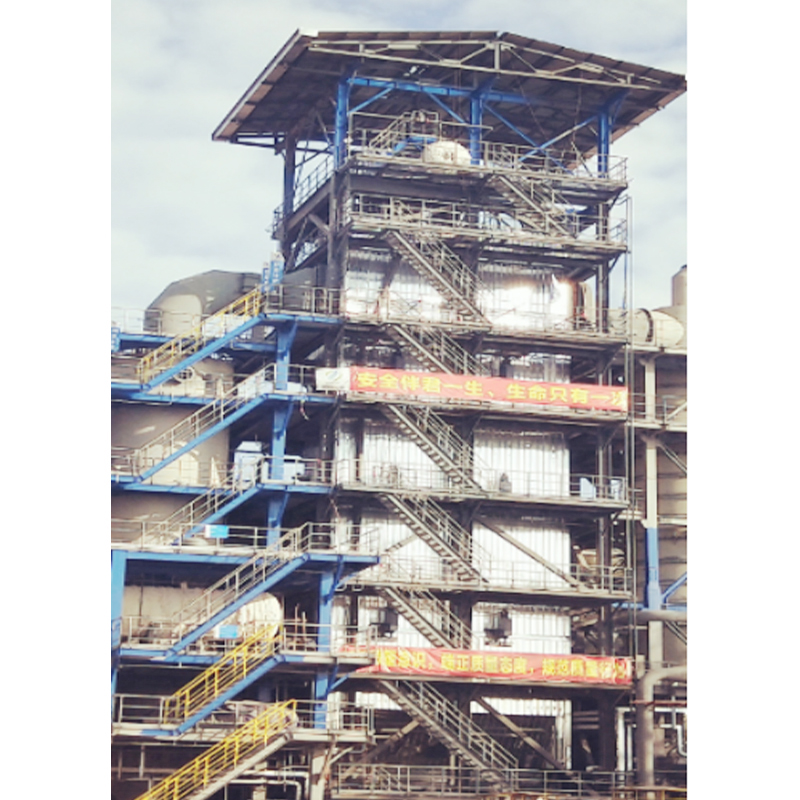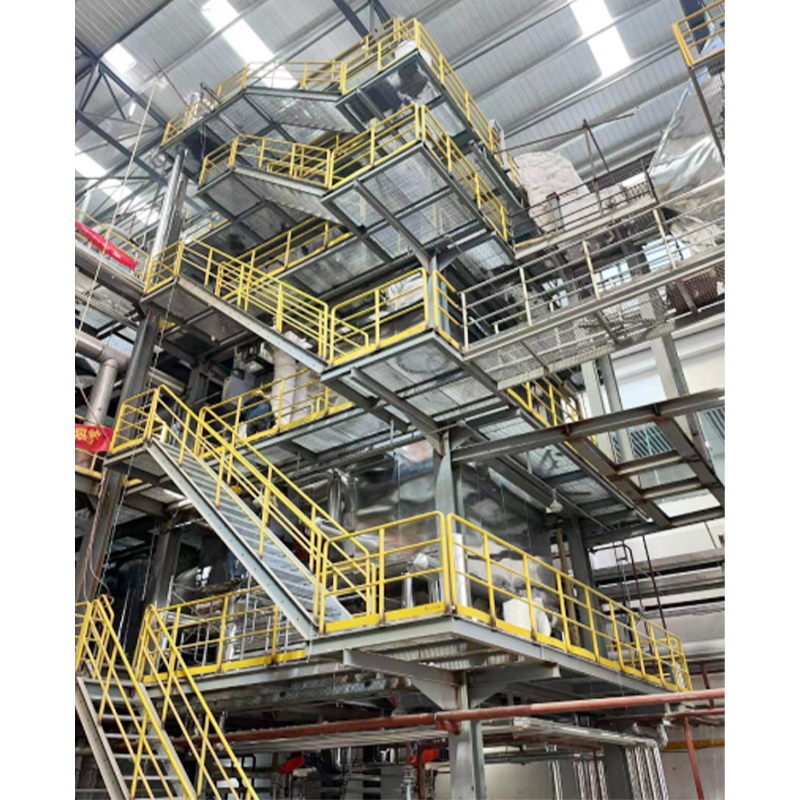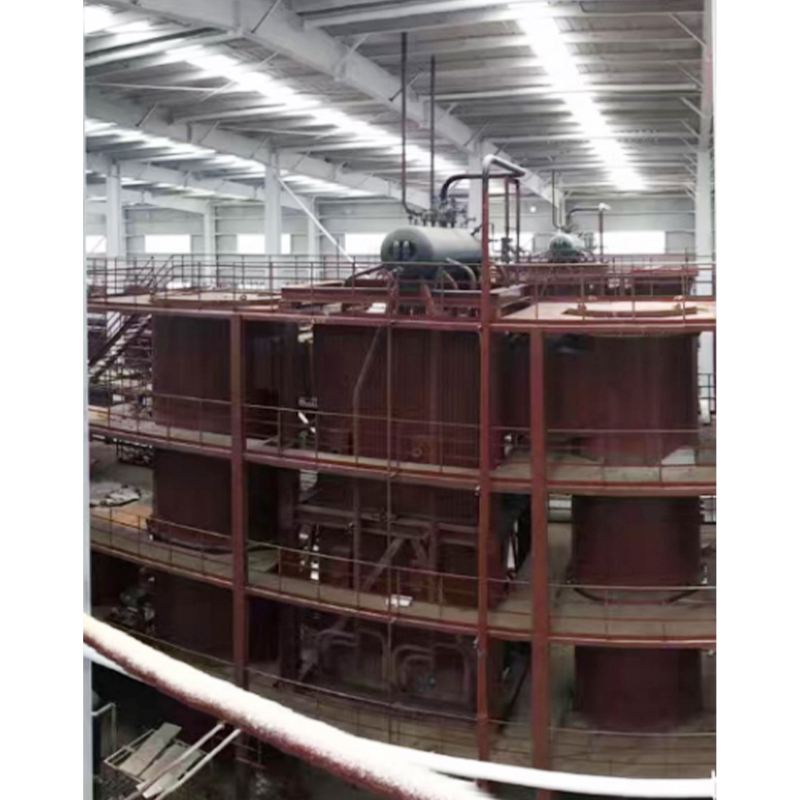Waste Heat Boiler For Sludge Incineration
**Waste heat boiler for sludge incineration** is a system that utilizes the waste gas and waste heat generated during sludge incineration and converts them into useful energy (such as steam, hot water, power generation, etc.) through a waste heat boiler. Sludge incineration is an important method for treating sludge produced by urban sewage treatment plants and industrial sewage treatment plants. It can not only effectively reduce the amount of sludge, but also recover part of the heat energy for power generation or heating. Through the supporting waste heat boiler, the utilization efficiency of heat energy in the waste gas can be improved, thereby reducing energy consumption, reducing environmental pollution, and improving the overall treatment efficiency.
1. **Application scenarios**
Waste heat boilers for sludge incineration are mainly used in the following scenarios:
- **Urban sewage treatment plants**: Urban sewage treatment plants treat a large amount of sludge. Through incineration treatment, not only can the amount of sludge be reduced, but also the heat energy generated can be recovered through waste heat boilers for power generation, heating or steam supply.
- **Industrial sewage treatment plants**: Some industrial sewage treatment plants also produce a large amount of sludge, especially in the chemical, papermaking, food processing and other industries. Incineration of sludge and matching it with waste heat boilers can achieve efficient use of energy.
- **Waste incineration plant**: The waste gas and heat generated during waste incineration can be recovered through waste heat boilers, which can not only reduce pollution but also provide additional electricity and heat for the incineration plant.
- **Sludge treatment center**: Some specialized sludge treatment centers use centralized incineration to treat a large amount of sludge from different sources. Waste heat boilers can comprehensively recover the heat energy generated by sludge incineration from different sources to maximize utilization.
- **Energy recovery center**: Some areas have set up special energy recovery facilities to combine sludge incineration with energy recovery systems, which not only solves the sludge treatment problem, but also provides clean energy through waste heat boilers.
2. **Purpose**
The main uses of waste heat boilers for sludge incineration include:
- **Power generation**: By recovering the heat energy generated during sludge incineration, the waste heat boiler converts it into steam to drive the steam turbine to generate electricity. The generated electricity can be supplied to the sludge treatment plant for its own use, reducing the cost of external power procurement.
- **Heating**: Waste heat boilers can convert waste heat generated during the incineration process into hot water or steam, supplying it to the sludge treatment plant or surrounding facilities, meeting the heating needs of the factory production process, and even supplying the heating needs of the surrounding communities.
- **Energy saving and emission reduction**: By efficiently recovering and utilizing the heat energy generated by sludge incineration, it reduces dependence on external energy, reduces energy consumption, improves overall energy utilization efficiency, and helps to reduce pressure on the environment.
- **Waste gas cooling and environmental protection**: Recovering heat energy in waste gas through waste heat boilers can not only reduce the waste gas temperature, but also reduce emission pollution, ensuring that the waste gas temperature meets environmental emission standards.
3. **Features**
- **Efficient heat recovery**: The waste gas generated during sludge incineration has a high temperature, and the waste heat boiler can efficiently recover the heat therein, convert heat energy, and maximize energy utilization efficiency.
- **High temperature resistance and corrosion resistance**: The waste gas during the incineration process often contains corrosive substances, so the waste heat boiler needs to have strong high temperature resistance and corrosion resistance to ensure long-term stable operation of the equipment.
- **Intelligent control**: Modern waste heat boilers are usually equipped with automatic control systems that can monitor and adjust the operating status of the boiler in real time according to the flow rate and temperature of the exhaust gas, ensuring efficient, safe and stable operation of the system.
- **Modular design**: Waste heat boilers usually have a modular design, which is easy to install and maintain, and can be customized according to sludge treatment facilities of different sizes.
- **Strong environmental performance**: Waste heat boilers can not only recover heat energy, but also effectively reduce the temperature of exhaust gas, reduce pollutant emissions, and help sludge treatment plants meet environmental standards.
- **Multiple energy output**: The heat energy recovered by waste heat boilers can not only be used for power generation, but also provide hot water or steam to the plant and surrounding areas, forming multiple energy outputs.
4. **Advantages**
- **Energy saving and consumption reduction**: By recovering the heat generated during sludge incineration, waste heat boilers can significantly improve energy utilization efficiency, reduce the demand for external energy procurement, and thus reduce operating costs.
- **Reduce environmental pollution**: After the waste gas generated by sludge incineration is treated by the waste heat boiler, it can not only effectively reduce the waste gas temperature, but also reduce the emission of harmful substances in the waste gas, meet the environmental emission requirements, and reduce environmental pollution.
- **Improve energy self-sufficiency rate**: Through the recovery system of the waste heat boiler, the sludge treatment plant can reduce the demand for external electricity, improve the energy self-sufficiency rate of the plant area, and reduce dependence on traditional energy.
- **Promote green and low-carbon development**: The application of waste heat boilers is in line with the trend of green and low-carbon development. By recycling waste heat for power generation or heating, it reduces dependence on fossil energy and reduces greenhouse gas emissions.
- **Improve economic benefits**: By recycling waste gas heat energy, sludge treatment plants can reduce their dependence on external electricity and fuel, reduce energy costs, and thus improve overall economic benefits.
- **Comply with environmental protection policies**: With the increasingly stringent environmental protection policies, waste heat boilers help sludge treatment plants improve energy utilization efficiency, reduce pollution emissions, and ensure that enterprises meet environmental protection standards and national energy conservation and emission reduction policies during sludge treatment.
- **Enhance the image of corporate social responsibility**: The application of waste heat boilers for sludge incineration demonstrates the company's responsibility in energy management, energy conservation and emission reduction, and environmental protection, and helps to enhance the company's social image and competitiveness.
Summary
Waste heat boilers for sludge incineration are an effective technology to meet the dual needs of sludge treatment and energy utilization. By recycling the waste gas and waste heat generated during sludge incineration, waste heat boilers can not only provide sludge treatment plants with energy such as power generation and heating, but also significantly improve energy utilization efficiency, reduce dependence on external energy, and reduce production costs. At the same time, waste heat boilers can effectively reduce waste gas temperature, reduce environmental pollution, help companies comply with environmental protection policies, and promote green and low-carbon development. With the further advancement of environmental protection policies and the increase in demand for sludge treatment, waste heat boilers will play an increasingly important role in the field of sludge incineration.



